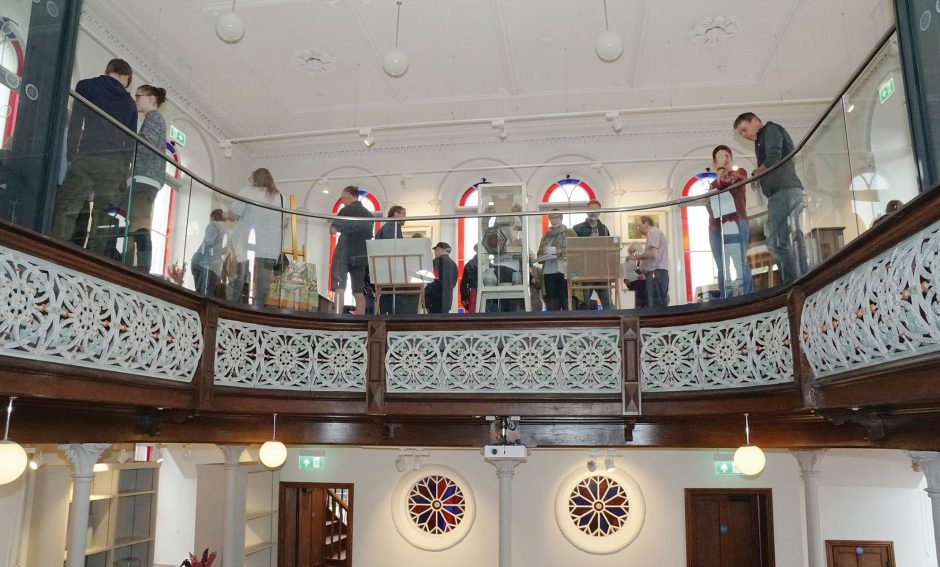The co-operative economy report revealed that the UK’s 7,215 independent co-ops had a turnover at a record high of £37.7bn in 2019, up more than £400m on 2018 levels. Produced by trade body Co-operatives UK, the report shows the turnover, membership and employee figures for thousands of co-op businesses across the UK.
There are 7,215 independent co-ops operating across the UK, a drop of 51 from 2018 levels. While there are fewer co-ops, they are doing more business, with turnover at a record high of £37.7 billion, up more than £400m on 2018 levels.
Co-operatives UK attributes the decline in the number of co-ops to a decline in new starts, with 150 co-op start-ups in 2019, down from the previous year’s 191.
The report confirms the co-operative model remains resilient, with almost three out of four co-op start-ups (72%) still flourishing after the difficult first five years of existence, compared to only 43% in the case of new companies (57%).
The UK’s co-ops have 13.7 million members and 233,733 employees. The majority of the UK’s co-ops are based in England, which also accounts for 87% of the total turnover, as well as 79% of newly created co-ops in 2019. However, both Scotland and Wales created more co-ops than England when correlated against business population.
The report reveals that agriculture and finance remain the dominant sectors in Scotland, combining to provide almost 40% of co-ops. More than 50% of co-ops in Wales are in the membership associations, social clubs and trade unions sector. In Northern Ireland over 61% of co-ops are in the finance sector – reflecting a strong credit union presence, with another 15% of co-ops in the agriculture sector.
According to the report, the UK’s largest co-operative is the John Lewis Partnership, with a turnover of £10.316bn, followed by the Co-operative Group with £10.162bn, Arla Foods with £2.643bn, the National Merchant Buying Society (NMBS) with £1.787bn and the Midcounties Co-operative with £1.177bn. The Central England Co-operative comes sixth with a turnover of £827m.
Co-op Group CEO Steve Murrells said: “We are living in fractious and uncertain times where many communities feel disconnected and vulnerable. It is in such a climate where the true value of co-operation can shine through, just like it did in Rochdale 175 years ago.
“Co-ops are innovative, resilient and inclusive, characteristics the UK will need more of in the years ahead. Our way of doing business has never felt more relevant than it does today.”
The report also shows that rural economies are the most co-operative in the UK, with the Outer Hebrides, Orkney Islands and Shetland Islands having the highest ratio of co-operative businesses to people, followed by Eden and Allerdale in Cumbria.
Among those co-ops making a difference in rural economies is Papay Community Co-operative, a member-owned business on Papa Westray, one of the most northerly of the Orkney Islands.
The centre, which is run entirely by local people, operates the island’s only shop as well as a 20-bed hostel.
Papay Community Co-operative secretary Tim Dodman said: “It’s absolutely vital for us to have a community shop – a reliable shop that’s competitively priced. It has played a key role in preventing population decline.”
He added: “The co-op ethos is very important. It’s a sharing model. This is a small island and pretty remote. It’s much better to work co-operatively than have one individual in control of a lifeline service.”

Similarly, in the North Pennines, the Nenthead Arts and Visitor Centre was saved by local residents who raised the funds through grant funding and a community share offer. A former chapel, the centre is one of England’s highest co-ops at around 15,000 feet above sea level.
Sandra Mackenzie, chair of Nenthead Arts and Visitor Centre said: “Our aim is to put Nenthead on the map as a top tourist destination, attracting visitors to experience the hospitality of our fabulous café, exciting gallery space and dramatic outdoors.
“The centre is now owned by the community which means we control our own destiny, with members having a stake and a say in how things are run. With tourism making such a vital contribution to so many people’s livelihoods it was important to us that the community is empowered to take decisions about such a valuable asset.”
Ed Mayo, Co-operatives UK secretary general, said: “When needs are so acute in remote and rural areas there’s a necessity and greater impetus for people to work together. There’s strength in being able to rely on others, on being part of a co-op.
“The model is just as relevant in inner-city Glasgow or central London as it is in the Outer Hebrides. The entire UK economy could learn a lot from the extraordinary success of the Scottish isles and rural Cumbria – particularly in today’s climate.”

